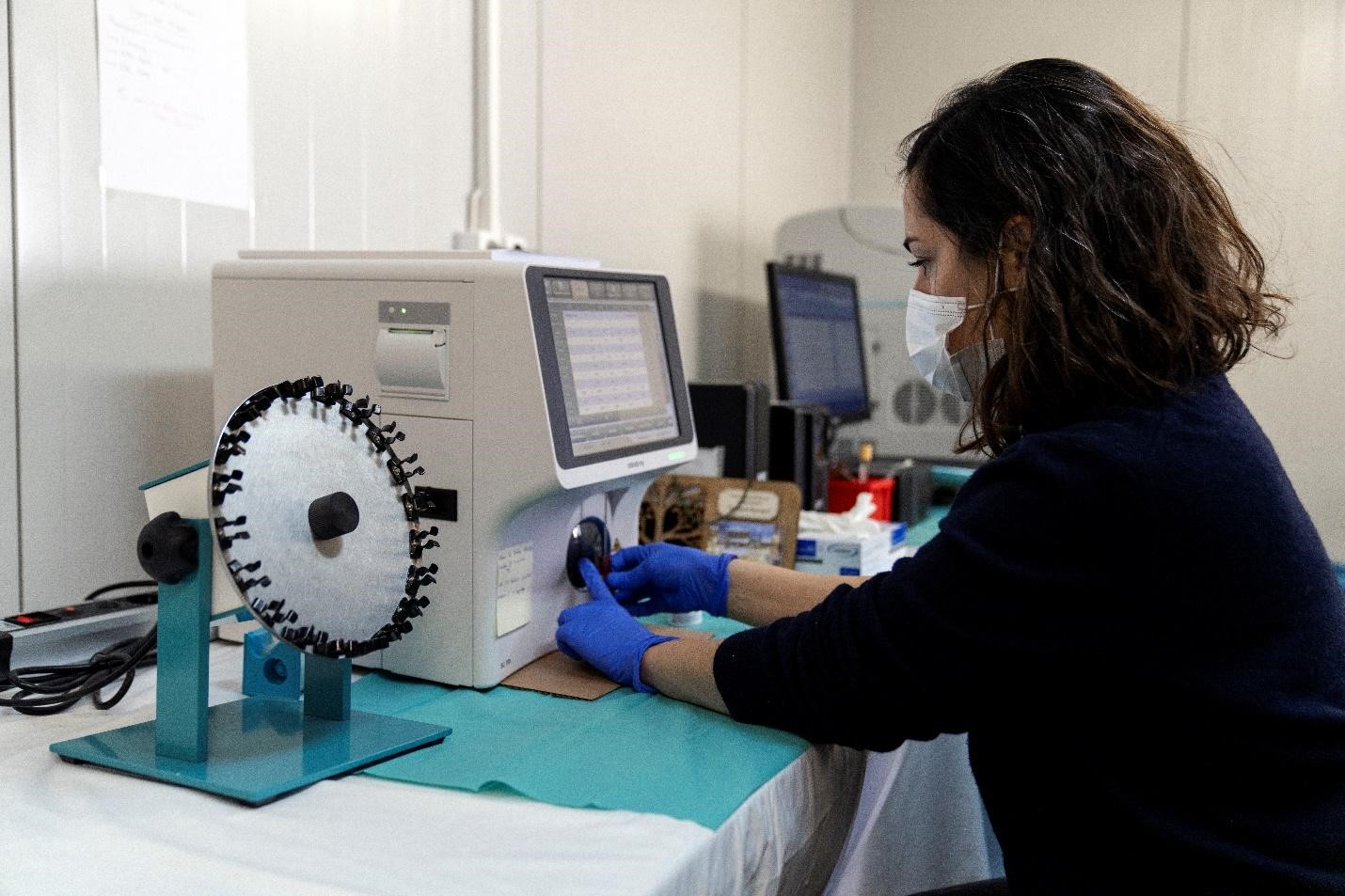The refugee and migrant camp on the Greek Island of Lesvos is one of the largest of its kind in Europe. The camp is home to approximately 1649 individuals, which includes 1215 adults and 434 minors. As a result of the burning down of the Mória Refugee Camp in 2020 and relocation of the refugees and migrants to a temporary camp, the WHO Country Office in Greece, WHO Regional Office for Europe and WHO headquarters initiated an emergency response to address the health needs of the vulnerable group. An emergency medical team alongside a mobile health clinic were established, which are still operating today under WHO guidelines by the National Public Health Organization at the temporary camp. Amidst the COVID-19 pandemic, along with WHO Emergency Medical Teams (EMT), a Rapid Response Mobile Laboratory (RRML) was deployed by the WHO coordination umbrella, supporting the authorities in its surveillance and contact tracing efforts.
How did Greece do it, and how did the WHO Secretariat support Greece?
The operation of the emergency response plan continues through the mobile health clinic and RRML initially established by the WHO Country Office in Greece, WHO Regional Office for Europe and WHO headquarters and then donated to the National Public Health Organization to ensure sustainability. In addition, the WHO coordination umbrella organized capacity building sessions for the personnel of the National Public Health Organization. Healthcare services were maintained within the camp, enabling refugees and migrants to access COVID-19 PCR testing throughout the pandemic via the RRML. Additionally, a COVID-19 testing strategy was developed which established quarantine and isolation areas. The adaptable strategic plan for the management of the pandemic within the newly established Lesvos camp continues to be adjusted according to the evolving context.
The immunization plan for refugees and migrants is supported through the Ministry of Health, Health Working Group targeting all health issues within all refugee camps, including the Lesvos camp. The responsibility is shared by the Ministry of Health and the participation of other governmental bodies, United Nations agencies (WHO, the United Nations High Commissioner for Refugees (UNHCR), International Organization for Migration (IOM), the United Nations Children’s Fund (UNICEF)) and civil society organizations (Médecins sans Frontiers, the Hellenic Red Cross, and Médecins du Monde) and other national organizations such as the Greek Formal Refugees (which represents beneficiaries). A taskforce for the rollout of COVID-19 vaccination was later established by the federal level in Athens, convening each week to ensure that all agencies contribute to the development and efficiency of the immunization rollout in all camps in Greece including Lesvos. The WHO Country Office in Greece’s provision of technical guidance and its collaboration with the Greek government has supported the creation of an immunization policy document which, with considerable WHO Country Office input, has strengthened its implementation. Through the taskforce, the ownership of the government, and the coordination of all stakeholders, the evolving policy document can be adapted to the populations’ needs and the tasks at hand.
Additional to the Health Working Group on the federal level are the Communication with Community sessions whereby feedback regarding the immunization strategy and messages from the community can be addressed. Religious leaders, individuals representing ethnic groups, interpreters and the National Public Health Organization field agents (also known as EODY) as well as WHO Country Office representatives gather to discuss issues of concern and provide feedback. As a result, a Risk Communication and Community Engagement Campaign for COVID-19 was developed. Messages of safety and effectiveness included: “The coronavirus (COVID-19) vaccine is safe and effective and has been approved by several national and international agencies, such as World Health Organization, European Medicines Agency and US Food and Drug Administration. It gives you the best protection against coronavirus”. The campaign also focused on issues of scheduling and prioritization, as well as information-sharing regarding potential side effects through an EODY door-to-door approach.
The successful communication between stakeholders and beneficiaries, as well as the ongoing coordination efforts, have resulted in weekly mass vaccination implementations within the Lesvos camp until the present day. According to the National Public Health Organization as of 18 March 2022, 85.5% of refugees and migrants in the Lesvos camp have been vaccinated. This percentage refers to all camp inhabitants eligible for vaccination age five years and above. Interpreters and directed communication channels, including the community, were central for vaccination uptake within the camp, which is documented at a higher percentage than that of the same vulnerable group in the whole country (40% vaccination uptake in vulnerable groups around Greece). Individuals have the ability to lead their everyday lives safely, be prepared and look forward to what the future holds.

Photo Credit: © WHO Francesco Bellina/Cesura
Photo Caption: Laboratory technician working in a rapid response mobile laboratory which was donated by WHO to the National Public Health Organization.

